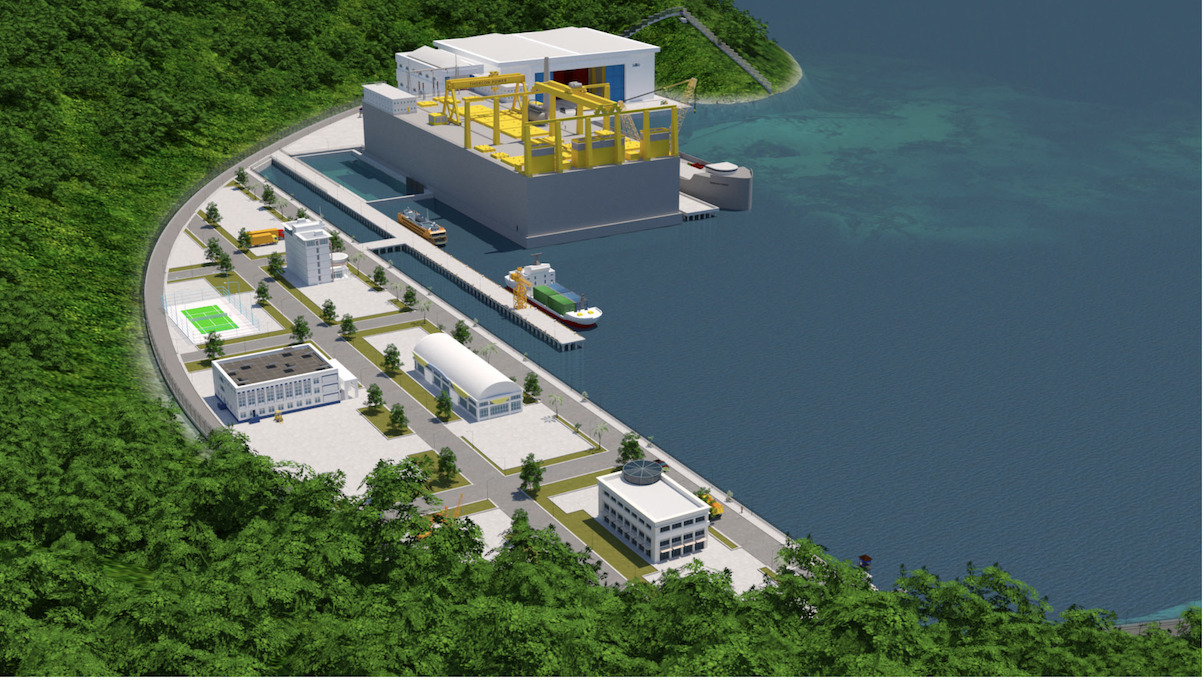In a bold move to achieve net-zero carbon emissions by 2050, Indonesia has unveiled plans to construct at least 20 nuclear power plants. The ambitious initiative will begin with a prototype nuclear reactor developed by ThorCon, a U.S.-based nuclear developer. This groundbreaking project is set to be established on Kelasa Island in Bangka Belitung province, with the first reactor expected to deliver 500 MW of low-carbon electricity by 2028.
ThorCon Leads Indonesia’s Nuclear Energy Transition
The Indonesian government’s decision to partner with ThorCon highlights the importance of nuclear energy in meeting the country’s growing low-carbon energy needs. ThorCon’s facility will utilize a Thorium Molten Salt Reactor (TMSR), a cutting-edge technology known for its efficiency and sustainability. Bob Effendi, Chief Operating Officer of ThorCon’s Indonesian subsidiary, emphasized Bangka Belitung’s strategic choice as the site due to its rich tin resources. Thorium, a byproduct of tin production, will play a crucial role in powering the reactors.
The construction of the prototype reactor is estimated to cost $1.06 billion. It will be manufactured in South Korea and transported to Indonesia via sea, underscoring the international collaboration involved in this initiative.
Indonesia’s Nuclear Energy Vision
Indonesia’s nuclear energy ambitions align with its broader renewable energy strategy, which aims to increase electricity supply by 100 GW in the next 15 years. Renewable sources are projected to contribute 75%, while nuclear power will account for 5%. This shift reflects the government’s commitment to diversifying energy sources while reducing dependence on fossil fuels.
Small modular reactors (SMRs) are a key component of this strategy. State-owned electricity company PLN has partnered with American and Japanese firms to develop SMRs with capacities of under 300 MW. These compact nuclear solutions are seen as a practical response to Indonesia’s base-load energy challenges.
International Interest and Local Challenges
Indonesia’s clear commitment to nuclear energy has attracted interest from countries such as South Korea, Russia, France, and China. These nations are eager to collaborate on developing nuclear infrastructure to support Indonesia’s transition to low-carbon energy.
However, experts caution against over-reliance on nuclear power. Dinita Setyawati, a Southeast Asia electricity policy analyst at Ember, pointed out that while nuclear energy addresses base-load requirements, other renewable sources like wind and solar are essential to effectively reduce the dominance of fossil fuels.
Future Outlook: A Balanced Energy Mix
Indonesia’s nuclear power initiative is a critical step toward achieving its net-zero emissions target. By integrating nuclear energy with other renewables, the country aims to create a sustainable and resilient energy infrastructure. While challenges remain, the commitment to nuclear power reflects Indonesia’s determination to lead Southeast Asia’s transition to a cleaner energy future.
Read More






 Friday, 23-01-26
Friday, 23-01-26







